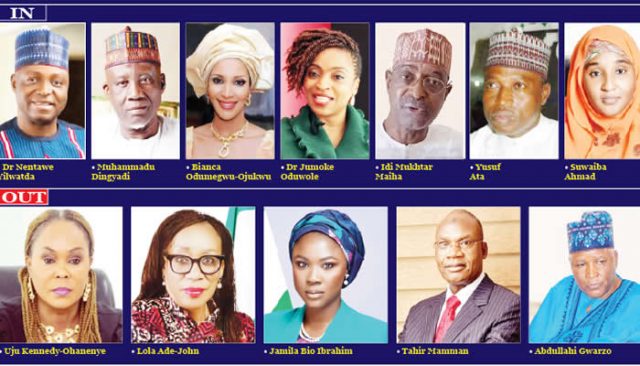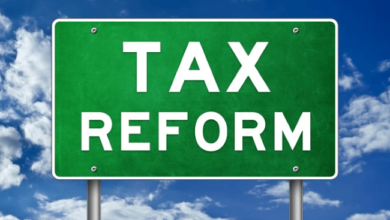Tinubu’s Cabinet Reshuffle: What should Nigerians Expect?
the criticisms directed at the retained ministers largely revolve around their perceived failure to address Nigeria's pressing economic issues, poor performance in their respective roles, and a disconnect between government actions and public expectations for effective governance.

The much-anticipated cabinet reshuffle by President Tinubu has finally taken place. It may however mean different things to the different stakeholders. Among the losers are the 5 ministers who were dropped from the cabinet but some argue that Nigerian citizens are the biggest losers as the exercise has not brought any fundamental changes to the cabinet as ministers who hold critical protfolios and have grossly underperformed have been retained in their positions.
The Presidency, however, believes that the reassignment of ten other ministers, and the appointment of seven new ministers, is a significant political maneuver aimed at addressing ongoing economic challenges and public dissatisfaction with his administration.
Ministers Affected
Sacked Ministers
- Uju-Ken Ohanenye – Minister of Women Affairs
- Lola Ade-John – Minister of Tourism
- Tahir Mamman – Minister of Education
- Abdullahi Gwarzo – Minister of State for Housing and Urban Development
- Jamila Ibrahim – Minister of Youth Development
Newly Appointed Ministers
- Bianca Odumegwu-Ojukwu – Minister of State for Foreign Affairs
- Nentawe Yilwatda – Minister of Humanitarian Affairs and Poverty Reduction
- Maigari Dingyadi – Minister of Labour and Employment
- Jumoke Oduwole – Minister of Industry
- Idi Maiha – Minister for Livestock Development (newly established ministry)
- Yusuf Ata – Minister of State for Housing and Urban Development
- Suwaiba Ahmad – Minister of State for Education
Reshuffled Ministers
Ten ministers were reassigned to new portfolios:
- Hon Dr Yusuf Tanko Sununu | Minister of State, Education Minister of State | Humanitarian Affairs and Poverty Reduction
- Dr. Morufu Olatunji Alausa | Minister State, Health | Minister of Education
- Barr. Bello Muhammad Goronyo | Minister of State, Water Resources and Sanitation | Minister of State Works
- Hon. Abubakar Eshiokpekha Momoh | Minister of Niger Delta Development | Minister of Regional Development
- Uba Maigari Ahmadu | Minister of State Steel Development | Minister of State Regional Development
- Dr. Doris Uzoka-Anite | Minister of Industry, Trade and Investment | Minister of State Finance
- Sen. John Owan Enoh | Minister of Sports Development | Minister of State Trade and Investment [Industry]
- Imaan Sulaiman-Ibrahim | Minister of State, Police Affairs | Minister of Women Affairs
- Ayodele Olawande | Minister of State for Youth Development | Minister for Youth Development
- Dr. Salako Iziaq Adekunle Adeboye Minister of State, Environment | Minister of State, Health
Implications for Tinubu’s Presidency
Benefits
Increased Efficiency: The reshuffle is intended to streamline operations within the government, potentially leading to more effective governance during a time of economic crisis
Addressing Public Dissatisfaction: By making significant changes in leadership, Tinubu may be attempting to respond to public frustration over economic hardships, including soaring inflation and high living costs
Strategic Appointments: The inclusion of new ministers with fresh perspectives could bring innovative solutions to pressing issues, particularly in areas like humanitarian affairs and education.
Setbacks
Political Instability: Frequent changes in leadership can lead to instability within the government, affecting policy continuity and implementation
Public Perception: If the new appointments do not yield immediate improvements in governance or economic conditions, public trust in Tinubu’s administration may further erode
Potential Resistance: Newly appointed ministers may face challenges in establishing their authority and direction amidst existing bureaucratic structures and political dynamics.
This cabinet reshuffle reflects Tinubu’s acknowledgment of the pressing need for reform within his administration as Nigeria grapples with significant economic challenges. The effectiveness of this exercise will largely depend on how well the new appointees can navigate these complexities and deliver tangible results for the populace.
President Bola Tinubu’s recent cabinet reshuffle stems from several key factors aimed at addressing Nigeria’s pressing economic challenges and responding to public dissatisfaction with his administration. Here are the main reasons behind this significant political move:
- Economic Crisis
The reshuffle occurs against the backdrop of severe economic hardship in Nigeria, characterized by soaring inflation rates, which have reached a 28-year high of 32.70% due to policies like the devaluation of the naira and cuts to fuel and electricity subsidies. This economic turmoil has led to widespread protests and public discontent, prompting Tinubu to take decisive action to restore confidence in his government
.
- Public Pressure and Calls for Accountability
There has been mounting pressure from citizens, civil society organizations, and even members of the private sector for the president to replace underperforming ministers. Many Nigerians expressed dissatisfaction with the government’s handling of key issues, particularly in sectors like education, security, and energy
The reshuffle is seen as an attempt to respond to these demands for accountability and improved governance.
- Performance-Based Evaluation
Tinubu’s administration emphasized a performance-based approach to governance. The president had previously indicated that periodic reviews of ministerial performance would guide decisions on cabinet composition. This evidence-based strategy aims to ensure that only effective ministers remain in their roles, thereby enhancing overall government efficiency
.
- Structural Reforms
The reshuffle included significant structural changes within the cabinet, such as merging ministries and renaming others to better align with current governance needs. For instance, the Ministry of Niger Delta Development was renamed to the Ministry of Regional Development, reflecting a broader focus on regional issues
- Strategic Appointments
By appointing new ministers with fresh perspectives in critical areas such as humanitarian affairs and poverty alleviation, Tinubu aims to inject new energy into his administration and tackle ongoing challenges more effectively
By reshaping his cabinet and focusing on performance, President Tinubu seeks not only to improve administrative efficiency but also to regain public trust amidst growing dissatisfaction with his leadership.
What were the main criticisms of the ministers who were retained
The decision to retain certain ministers in President Bola Tinubu’s cabinet has drawn significant criticism, particularly concerning their performance amid Nigeria’s ongoing economic challenges. Here are the main criticisms directed at the retained ministers:
- Inadequate Response to Economic Crisis
Critics argue that many retained ministers have failed to effectively address the severe economic hardships facing Nigerians, including soaring inflation and rising costs of living. The retention of key figures such as the Minister of Finance and the Minister of Power has been particularly contentious, as their departments are seen as central to resolving these issues.
- Poor Performance in Key Ministries
Several retained ministers, especially those overseeing critical sectors like defense and power, have been criticized for their lack of impactful results. For instance:
- Bello Matawalle (Minister of State for Defence) faced backlash due to ongoing insecurity in various regions.
- Adebayo Adelabu (Minister of Power) was criticized for persistent electricity blackouts and tariff hikes, which have exacerbated public dissatisfaction with the government’s performance in managing energy supply
- Public Sentiment for More Comprehensive Changes
Many Nigerians expressed disappointment that only five out of 46 ministers were sacked, feeling that this was insufficient given the widespread perception that over half of the cabinet had not contributed positively to governance. Critics suggested that a more thorough overhaul, possibly involving the dissolution of the entire cabinet, would be necessary to bring about meaningful change
- Perceived Elitism in Governance
There is a growing sentiment among citizens that the current administration’s policies favor elite interests rather than addressing the needs of ordinary Nigerians. Critics have pointed out that retained ministers have not demonstrated a commitment to pro-poor policies or initiatives that directly benefit the populace
- Failure to Align with Public Expectations
Many observers noted that retaining certain ministers while sacking others seemed inconsistent with public expectations for accountability and performance-based governance. The decision to keep ministers who are perceived as ineffective has led to accusations that Tinubu is not fully committed to reforming his administration in response to public outcry
In summary, the criticisms directed at the retained ministers largely revolve around their perceived failure to address Nigeria’s pressing economic issues, poor performance in their respective roles, and a disconnect between government actions and public expectations for effective governance. For the majority of Nigerians, if these moves by the President do not result in urgently addressing the dire economic situation in the country, reducing inflation, hunger and unemployment, then it would have been an exercise in futility.












